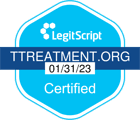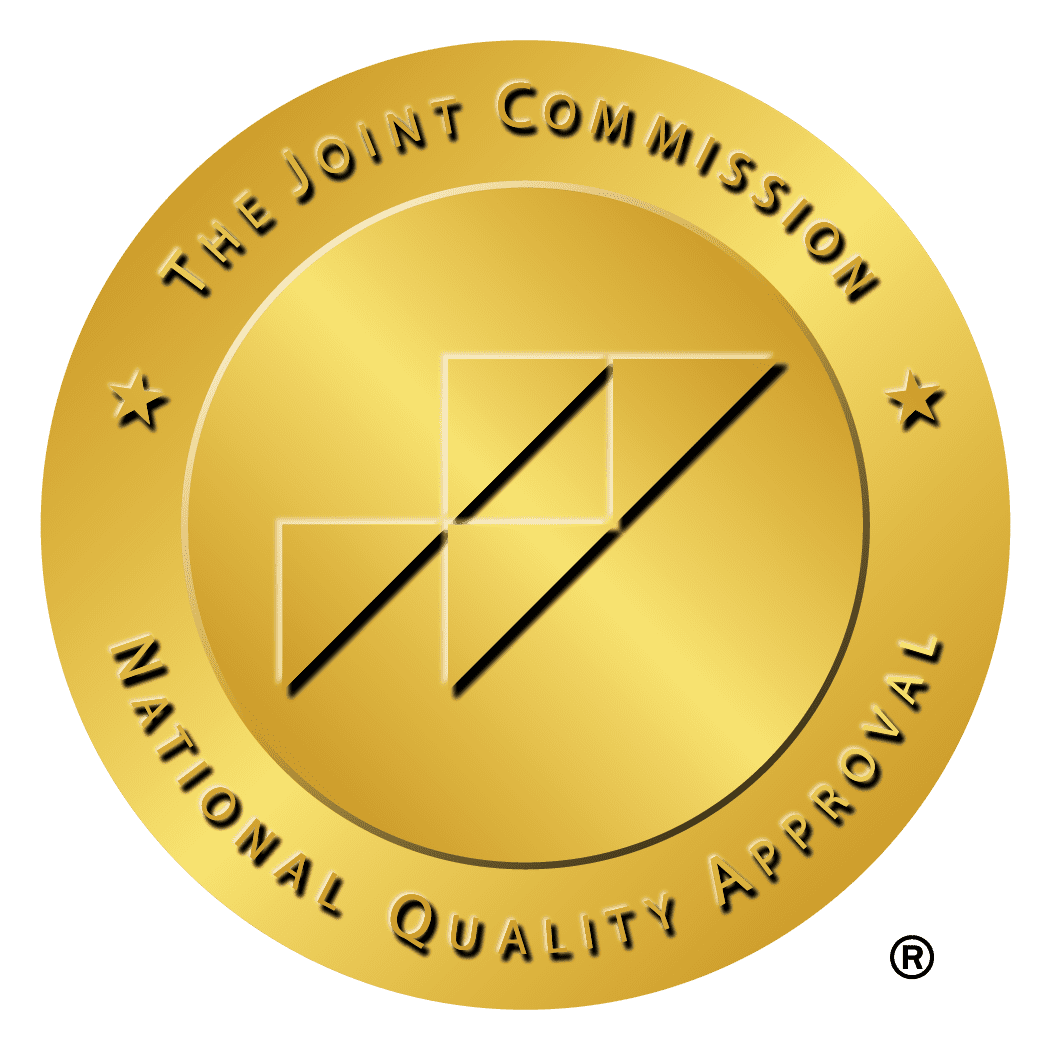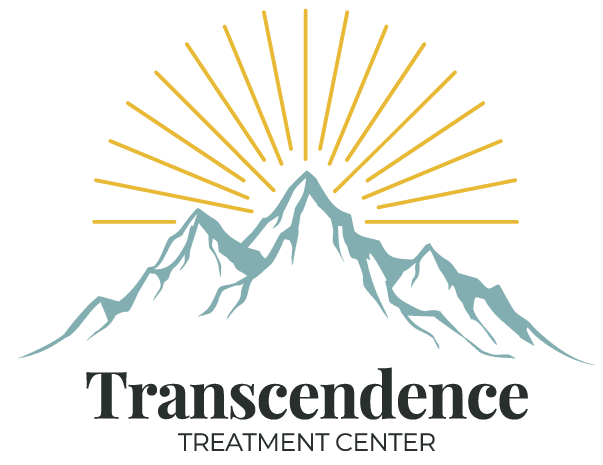In the advent of addiction, it can be hard to say no to someone you love when you know they are struggling. Your intentions to help your loved one may remain positive, yet it is possible that while helping a loved one who is struggling with addiction, be it financially, physically, emotionally, etcetera, you have, in some way, enabled their addiction further.
We know this is likely unintentional, yet going down the path of enablement is taxing for both the person suffering from the addiction as well as those helping them through their addiction. You may struggle to understand what exactly you can do to help your loved one get back on the right track to success which is why we aim to make this path a bit clearer by giving you a better understanding of the role enabling plays. Today, we hope to teach you how to detach in a healthy way in an effort to stop your loved one from pursuing their addiction even further.
Co-dependency
Co-dependency is defined as “a circular relationship in which one person needs the other person, who in turn, needs to be needed.” In these relationships, people can be viewed as opposites: the giver and the taker. Givers can often feel guilty or worthless when they are not needed. Takers enable the givers by demanding more and more. To a degree, it is human nature to have some level of co-dependency in certain situations. Not every person can operate at 100%, 100% of the time and it’s likely there have been times in which a partner, family member, or friend has needed to step up to the plate on your behalf and vice versa. However, being completely reliant on others all the time is not a healthy way to live.
Understanding your relationship with co-dependency can help you recognize patterns in your relationships and how these may impact your day-to-day. In particular, you can often turn to attachment style theory and understand how factors in your life (particularly during your upbringing) may have contributed to how you present yourself and act in various relationships in your life.
In the case of addiction, co-dependency can present itself with the addicted individual as the “taker.” The taker uses drugs as a form of “self-medication,” and there is research to suggest a correlation between those who lack secure attachment and drug usage. Addicts often become dependent on the people in their life in order to continue feeding their addiction, and this is where enabling comes into play.
Enabling
Now that you have a better understanding of what co-dependency is and how it may present itself in situations with a person addicted to drugs or alcohol, it’s important to understand your role in what it means to enable them further. When you enable someone, you allow them to continue partaking in an addiction that is ultimately worse for them in the long run.
We want to make it incredibly clear that you should not feel guilty for accidentally enabling someone— it’s likely that you were looking out for their best interest by providing a helping hand when they could not self-provide at the time. We know you love this person and want what is best for them, and in this case, that is honesty, healing, and a clearer path to sobriety.
So what does it mean to be an enabler?
In action, enabling can look like:
- Creating excuses on their behalf when they fail to meet expectations.
- Financially aiding them, allowing them to support their habit.
- Downplaying the severity of their addiction (further preventing them from getting professional help).
- Providing emotional support (especially emotional support that is untrue or naive in nature about their addiction).
- Lying to others on their behalf to shield them from consequences.
- Doing nothing at all when they need help.
It can be hard to say no when someone is begging for help. If you have been caught in the cycle of co-dependency for a while, you may feel obligated to help even to the detriment of your own health. You should not feel guilty for accidentally contributing to this addiction, but know that each day is a new opportunity to stop this cycle of behavior and move toward steps to get your loved one the professional help they need.
Types of Enabling
If you threaten to stop enabling the addict, prepare yourself for some of the ways they may react. Oftentimes, the drugs start doing the talking and you may be met with behavior that is out of character and can be unnecessarily cruel.
Fear-Based Enabling
The addict may make threats such as hurting themselves or cutting off ties completely, and out of fear, you may continue to enable them so that they do not follow through with their claims.
“If you don’t give me X amount of money I will never talk to you again…”
“I need to get some XYZ, I don’t have much to live for anyway…”
Hope-Based Enabling
The addict may use your sense of hope and optimism against you by suggesting that they are on the brink of recovery and obtaining XYZ-thing from you will help them get to the finish line. This type of enablement is often a fabrication of the truth and is likely to be met with disappointment and grief when they remain afflicted with their addiction with no plans to change.
“I’m going to find a rehabilitation program tomorrow, I promise….”
“I’ve been doing so good, I just need more time…”
“I just need one more high, then I’ll stop…”
“I’ve been looking for jobs, I’m so close to getting back on track…”
Guilt Based Enabling
In order to avoid personal responsibility, the addict may make some low blows to make you feel guilty as if you somehow contributed to their addiction.
“I needed you when I was X years old and you weren’t there…”
“Mom should have gotten custody and my life would have been different…”
“You weren’t paying enough attention to me during…”
Victim-Based Enabling
While it is true that addicts often come from upbringings that may have been a bit rocky and therefore led them to a path of addiction to self-soothe, they may use their baggage to avoid responsibility and instigate guilt.
“If you went through XYZ event, you would do drugs too…”
“You wouldn’t get it, you’ve never been through XYZ….”
“I never would have started drinking if it weren’t for…”
To see what a reaction of detachment may look like in action, the diner scene from director Felix Van Groeningen’s movie, Beautiful Boy, is a fantastic example. Based on a true story of addiction, Chalamet’s character begins getting angry when his father does not enable him, using many of these aforementioned strategies to try to get his way.
“I feel like I’m doing well, I just need a few hundred bucks.”
“This is kind of working out for me now, I’m five days sober.”
“You’re just embarrassed because you don’t like who I am now.”
“The more I think about it…mom should have gotten custody because you always have to be controlling everything all of the time.”
Dealing with Enabling as a Non-Addict
It is rather obvious when an addict is co-dependent on drugs/alcohol as well as dependent on people to help them fuel that addiction. What may be less obvious is that your role as an enabler also has you stuck in an unhealthy relationship cycle. You may feel a deep-rooted responsibility to help your loved one and feel guilty when you are not partaking in this cycle. It can be difficult to see, but they are feeding on you and you may not realize you are also feeding on them by continuing to help, even if this is draining you in the long run. A healthier, albeit harder, alternative is letting them deal with consequences on their own and/or getting them professional help.
Helping someone heal from addiction is taxing and you may be feeling frustrated, angry, defeated, and everything in between. It is not sustainable to constantly feel this way while dealing with a loved one. Your generosity may begin to fade over time as you become more aware that they are taking advantage of you and your kindness.
There is admirable courage in speaking out about what you are experiencing. We recommend that you seek help from those who can relate to the situation you are in and aid you in your healing. We at Transcendence Treatment Center host a Family and Friends Support Group every Thursday at 11:00 am. If you are located in the North Charleston, South Carolina area and are interested in attending, please call us at 854-222-3773 or email us at [email protected] for more details.
Detaching with Love
Now that you have a more comprehensive understanding of co-dependency, enabling, and some of the reactions and expectations that come with this, we want to equip you with the skills to detach from your addicted loved one with compassion. Detaching with love allows you to uphold important boundaries necessary for your health and wellbeing by displaying care and tough love for the addicted individual. Instead of resorting to the enabling methods you may have previously relied on, taking actionable steps to recovery will be more beneficial at this time. This could look like enrolling them in a rehabilitation program, making their meals, not making excuses on their behalf, no longer lying to others, and getting them on the right path to recovery.
While we have warned that detachment may be met with aggression, we want you to keep in mind that tough love is necessary. In the same way you may scold a child before they touch a hot stovetop or yell at a dog about to get into a box of chocolate, you do not do it because you hate them, but because you want to protect them. Even if they do not understand, you are showing them tough love with their health in mind and we hope you can remain strong while declaring new boundaries.
Please remember that to detach is to take the next step towards necessary growth and well-being for the addicted person. You care enough about them to aid their healing by allowing them to finally take responsibility for the decisions they have made. You no longer need to be responsible for dealing with their struggles and you both deserve peace.
What You May Experience After Detaching with Love
The most difficult things in life are often the most rewarding. You may feel immediate guilt if you are met with resentment for not continuing to enable the addict, but please take it easy on yourself and know you are ultimately making the right choice for both you and them even if it is difficult. We hope after the fact you can feel a sense of freedom and relief as you heal from ending the unhealthy relationship cycle.
Taking Care of YOUR Healing
We cannot stress enough that being in this cycle is not easy. You likely never imagined your relationship with this person going down this path and any emotions you are feeling in response are completely valid. There’s a reason that while traveling on airplanes the attendants advise you to put your mask on before helping others; you cannot save others if you yourself are too far gone. In order to adequately take care of others, we must first take care of ourselves before we run out of the ability to provide. While it’s easy to play the comparison game and feel guilty about this detachment since you are not the addicted individual, the reality is that you were not put in an easy position, nor were you expecting to be put in this position. Frustration is not only normal but expected.
We hope to be a resource for you while dealing with this frustration. As mentioned, we at Transcendence Treatment Center host a Family and Friends Support Group every Thursday at 11:00am in North Charleston, South Carolina. If you are interested in attending, please call us at 854-222-3773 or email us at [email protected] for more details.
To take the next steps in helping individuals deal with their addiction, we bring a holistic approach to healing that utilizes various forms of evidence-based therapies that are completely customizable to each individual’s needs. For help transcending into a sober lifestyle, learn more on our website https://ttreatment.org/ and reach out to us today.



